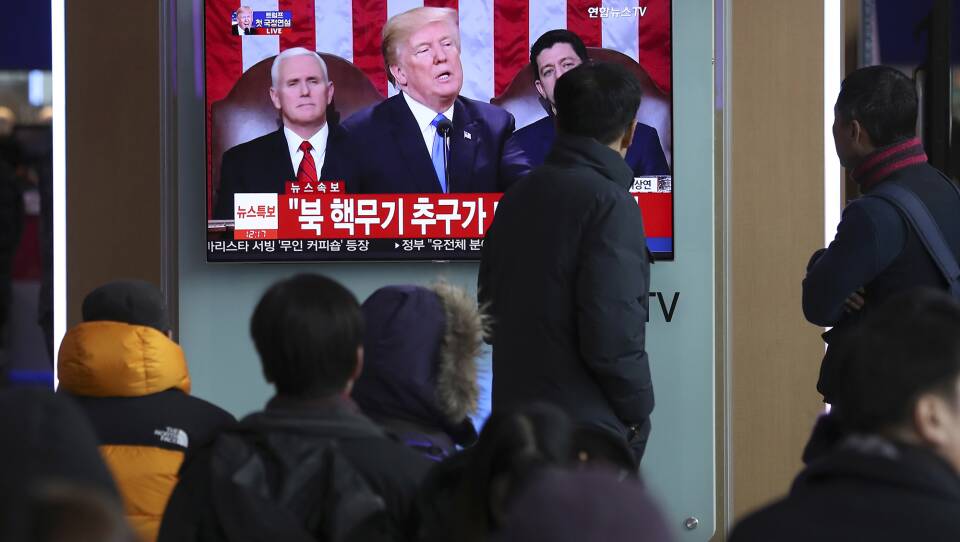The White House has abandoned its choice for the next ambassador to South Korea, reportedly because of differing views on the idea of using a pre-emptive strike against North Korea.
Victor Cha, who was widely reported to be the prime candidate for the post, is no longer under consideration, a National Security Council spokesman told NPR. No reason was given. Cha is a professor at Georgetown University who served as director for Asian affairs at the National Security Council during the George W. Bush administration.
In a Washington Post opinion piece published Tuesday, Cha recounted that while under consideration for the post, he shared his view that a pre-emptive military strike against North Korea could escalate into a war that "would likely kill tens, if not hundreds, of thousands of Americans."
The pre-emptive strike option advocated by some Trump aides is sometimes referred to the "bloody nose" strategy. That strategy, as Gerald Seib at The Wall Street Journal explained earlier this month, goes like this:
"React to some nuclear or missile test with a targeted strike against a North Korean facility to bloody Pyongyang's nose and illustrate the high price the regime could pay for its behavior. The hope would be to make that point without inciting a full-bore reprisal by North Korea."It's an enormously risky idea, and there is a debate among Trump administration officials about whether it is feasible. North Koreans have a vast array of artillery tubes pointed across the demilitarized zone at Seoul, the capital of South Korea, with which they could inflict thousands of casualties within minutes if they choose to unleash an all-out barrage."Now, that danger is coupled with the risk that the North Koreans could attempt to use a nuclear weapon if they choose to escalate in retaliation against even a single strike."
In his piece in the Post, Cha agrees. He argues that a retaliatory strike might aim for South Korea, which isn't protected by U.S. missile defenses. Among the 51 million people living in South Korea, the Korea Immigration Service says 140,000 are Americans, NBC News reports, including 28,500 U.S. military personnel.
Cha advocates instead for a four-point alternative strategy that calls for U.S., regional and global pressure on North Korea to denuclearize. "This strategy is likely to deliver the same potential benefits as a limited strike, along with other advantages, without the self-destructive costs," he writes.
That opinion took him out of the running for the ambassador job, the Post reports.
Michael Green, a former Bush administration official now at the Center for Strategic and International Studies, tells NPR that although there were indications of problems with Cha's security checks as a Korean-American, he believes the decision is primarily about Cha's political views.
"The background and security and ethics checks that he had to go through before his name was sent to Seoul, which it was, for what's called agrément — sort of pre-announcement approval — just suggest that the real issue was the growing opposition in and out of government to a military strike and I think he was associated with that," Green says.
Kelly Magsamen of the Center for American Progress, who served in both the George W. Bush and Obama administrations, tells NPR that any president needs to hear all sides.
"I would want somebody coming in and saying 'Okay, have you considered these downsides?' or 'Here would be the potential impact, maybe this isn't the best option. Maybe we should pursue a different option,' " she says. "You'd think you would want that level of debate especially if you are considering something like the use of force, which should always be a last resort."
Copyright 2018 NPR. To see more, visit http://www.npr.org/.




